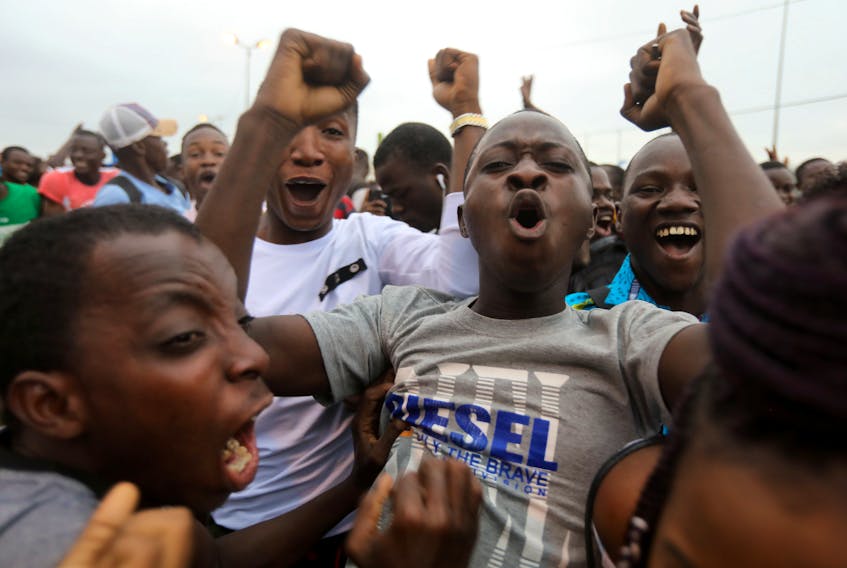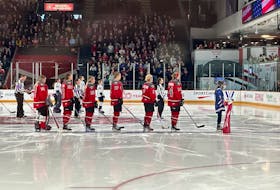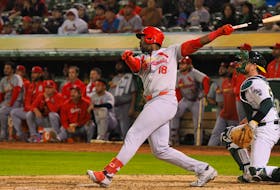By Mitch Phillips
(Reuters) - "If football was a president we would have a peaceful and exciting country," - the words of a young South Africa fan speaking to Reuters while watching his team play in the Africa Cup of Nations perfectly capture the unifying force of the world's most popular sport.
It is the game that allows fans to forget their troubles and domestic differences and come together for a few hours, where their hopes and dreams, joy and despair, are shared as one.
This happens in every corner of the globe, but across vast swathes of Africa, where daily life can be so hard for hundreds of millions of people and where their international footprint in politics, economics and other sports is often limited, it can seem more amplified, more visceral, even more meaningful.
The Cup of Nations has long been the touchstone for all this emotion and now, expanded to 24 teams and moved to a new mid-year slot in the calendar, it is touching ever more people.
Unlike the World Cup, which has been dominated by a small group and won by only eight countries, there have been 14 different Cup of Nations winners, and another six countries who have reached the final.
That means that players and fans from all over the continent approach it with high expectations – whatever their pedigree.
Five years ago Madagascar trailed 187th out of 211 in the FIFA rankings and had virtually no domestic soccer infrastructure. Yet not only did they qualify for this year’s tournament, they advanced through the group phase, stunning Nigeria and Democratic Republic of Congo to reach the quarter-finals where they lost to Tunisia.
"When we came here nobody took us seriously but we believed in ourselves," midfielder Anicet Abel told Reuters.
"Madagascar is not famous in football, I think Madagascar is only famous for the movie."
It is also worth remembering that Madagascar, "tiny" in football terms, has a population of more than 25 million, who were united as one in watching their team's incredible Egyptian adventure.
Mauritania and Burundi also played in the tournament for the first time, causing huge excitement as fans gathered together to huddle around TVs on the streets and in bars and mirroring the experience enjoyed in dozens of other African nations over the decades.
Reuters photographers have spent the last month capturing those unforgettable community moments when a goal goes in, the outpouring of joy for the scorers in one country and the concomitant agony, perhaps thousands of miles away, for those conceding.
The images tell their own story of that moment in time, but the supporters have also been keen to explain to Reuters why the goals and the game itself means so much to them.
Sarah, 20, Algeria fan.
"Football is part of us - Algeria is a football nation. There is not a single day where we don't watch a football game at home; national or international ones.
"In fact, winning a cup can have a positive impact and propel a whole country to the international sports and economic scenes, because other nations will be interested in knowing the geography, economy and culture of the winning country and also the victory will be inscribed in the history of humanity.
"Football unites and brings communities together in a way that politics can't do. The proof is here, we are all gathered regardless social classes, to support our national team."
---
Hanan, 22, Tunisia fan.
"When our national team play, I support them all the way with all my strength. When we win we start singing and kissing. That's definitely proof that football bring our community together."
---
Abdul Latif, 23, Ghana fan.
"I love football - Ghana and Barcelona. It unites this community and brings close to 40 people to my TV shop to watch the games on weekends."
---
Sello Modime, South Africa fan (and nurse).
"I feel that football has its own therapeutic healing, it brings people together, even people you never thought will be together.
"If football was a president we would have a very peaceful and very exciting country. To me football is a lifestyle and I’ve made friends in the name of football.
"Look at Nigeria (who South Africa were playing). There is a stigma where people have views about crime and legal dealings and view them for only the wrong things but if they go all the way to the final (they lost in the semis) that can change the way the world views them.
---
Rokaia (82), Algeria fan.
"I like football, I like to watch its funny moments. I am also the proof of how it brings the community together. I'm 82 years old and I'm here with a melting (pot) generation of people."
---
Dior Seck, Senegal fan.
"I'm only interested in football when Senegal play but when they do I have such a feeling that I can't even explain. A victory boosts the whole country, we feel people around the world have a better view of us."
---
Malick Sa, Senegal fan.
It's a passion and for Senegal, having never won the cup and being in the final – we have such hope. I say thanks to the Afcon for giving us the opportunity to come together because it's very rare to see such a mobilization here.
---
Morris Nwozu, Nigeria fan.
"Football affects my community in so many ways, it is like a binding factor, not only in my community but in Nigeria as a whole. We all came here from different tribes but we all come together watch the game together. We celebrated together and if we would have lost today we would have mourned together."
(Reporting by Mitch Phillips, editing by Christian Radnedge)









